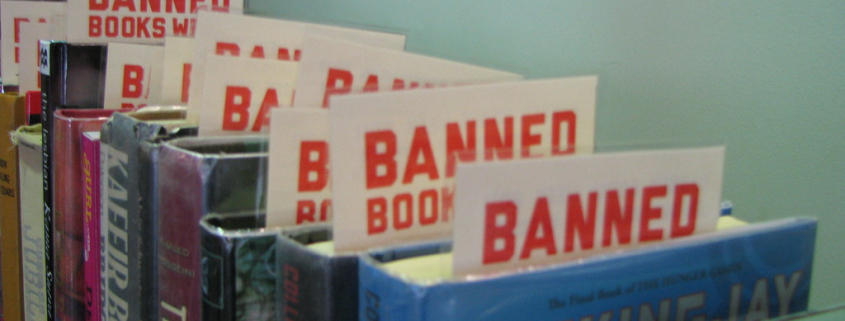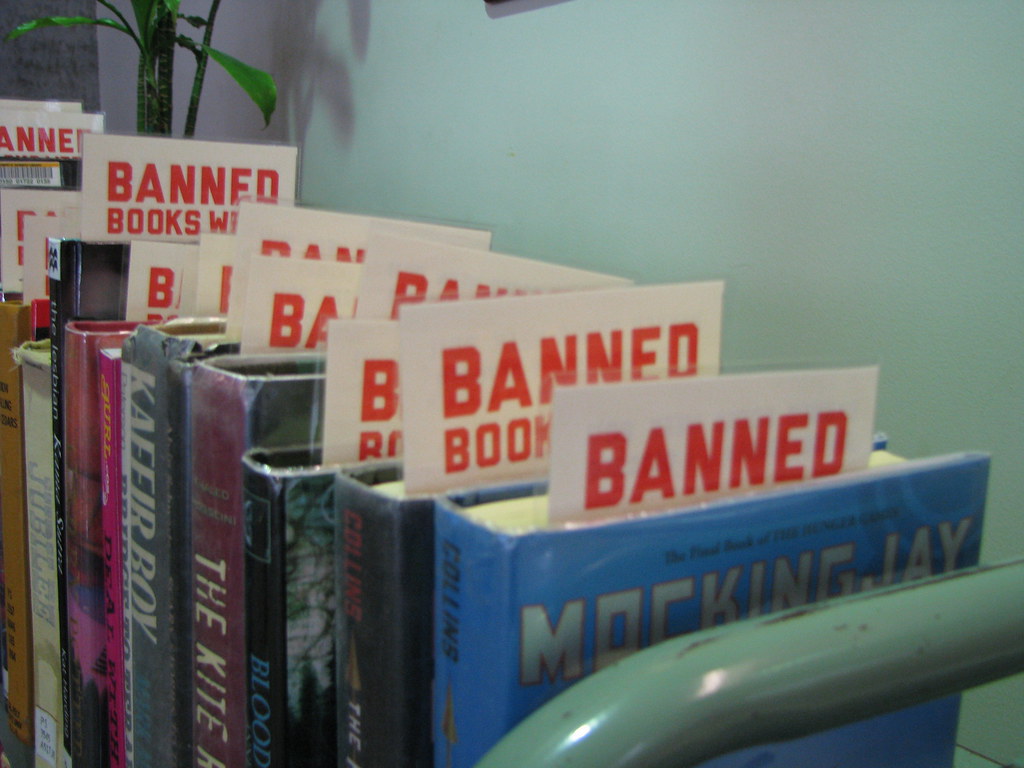Showbiz, Baby: Book censorship removes an opportunity to learn
Books were never a real source of controversy for me. I saw them as a vehicle for entertainment and education. That was, until my senior year of high school.
One of the required readings for my English class was “Native Son,” a story about a Black man living in poverty in Chicago’s South Side in the ’30s. Naturally, we read excerpts of the book in class where my white teacher did not hesitate to read a racial slur aloud. With every graduating class, this became a point of conversation once students got to their senior year. Questions of “Did y’all get to the part where he says it?” and arguments of whether he should’ve skipped over the word were constant.
Do I personally believe he had any right to say a racial slur, even in the context of education? No. But, to his point, that was the way the book was written and was meant to be read. This was the first instance where I saw how a book can cause some serious debate, but outside of the controversy, I found that I actually learned a lot about societal issues from reading “Native Son.”
Last year in my home state of Texas, legislators passed a law regulating how ideas of race and gender can be taught in school. Following this, Rep. Matt Krause sent a list of 850 books to superintendents to question whether or not they were on school bookshelves and claimed that they might “make students feel discomfort.” This list mostly targeted books about race, gender and sexuality.
Book bans are nothing new, but they have gained a serious amount of traction over the past year. The American Library Association reported it received a record of 330 book challenges last fall, a result of politicizing reading.
The unprecedented drive of book challenges mainly comes from conservative groups, who are now taking the issue to politics. Advocacy group No Left Turn in Education argues that these books spread radical ideologies. Others say that kids just aren’t ready for books about sex.
But when you’re challenging books about race and sexuality, you’re taking away these topics from those who really need it. You’re taking away the representation of marginalized groups in literature. Challenges to white, heterosexual stories are far and few between. These bans are inherently discriminatory in how they target marginalized points of view. Books are important to kids as they grow up and begin to learn about the world, and they need to feel that resources and representation are there for them.
Now, it’s important to note that not all challenges are coming from the conservative side. Books such as “To Kill A Mockingbird” have been under fire for years for how they address race. I implore everyone not to erase the racist history in literature. It’s important to keep these stories on the shelves as a point for reflection and understanding the problem. I learned from Professor Todd Boyd here at USC, though he was referring to film, that these older books represent an actual history in itself, a history that should not be forgotten.
The truth is that this movement of book challenges comes from parents asserting their own political ideologies into school and shielding their kids from what they deem inappropriate. To me, it feels like an act of parental control. With pandemic restrictions lifting, kids are getting back out into the world and away from their parents’ ever-so-watchful eyes.
Here’s the thing: You can’t shield your kids from reality forever. If a student wants to learn about sexual orientation, then they will find a way to, so don’t make it harder for everyone. Taking books away from schools only limits the perspectives students are allowed to think about. At the age where people are just beginning to learn about the real world, they need to be able to have access to diverse and comprehensive information.
Let students make their own choices. Help them be inquisitive and learn about new things, especially in regards to race, gender and sexuality. If parents feel that strongly about their children not learning about certain subjects, then it’s up to them to make that clear. Have a personal no-read list if necessary — though I don’t think that’s appropriate either. But definitely don’t take resources away from a whole school.
Markus Dohle, CEO of the publishing company Penguin Random House, personally donated $500,000 to fight these bans and created the Dohle Book Defense Fund to provide support to communities where books are being challenged. While his actions may also be within self-interest (as multiple books being challenged are published by Penguin), it’s important to see why others should follow suit.
The bottom line is that books offer an incredible amount of information regarding all subjects, and schools need to provide more accessible resources, not less. Book challenges remove the opportunity to learn.
In a New York Times article, author Laurie Halse Anderson said it best: “By attacking these books, by attacking the authors, by attacking the subject matter, what they are doing is removing the possibility for conversation.”
Sarah Hendartono is a sophomore writing about current events in the entertainment industry. She is also the page design director at the Daily Trojan. Her column, “Showbiz, Baby,” runs every other Tuesday.


